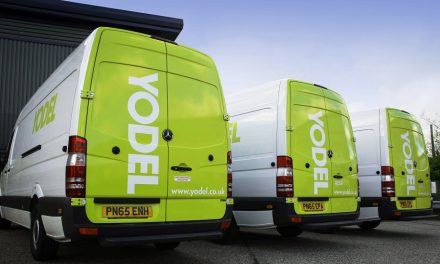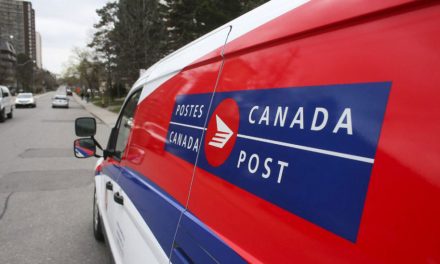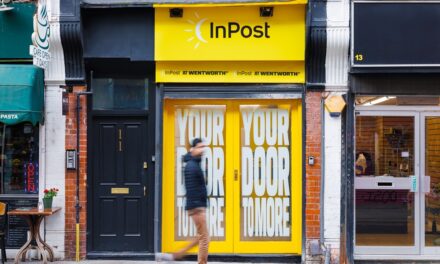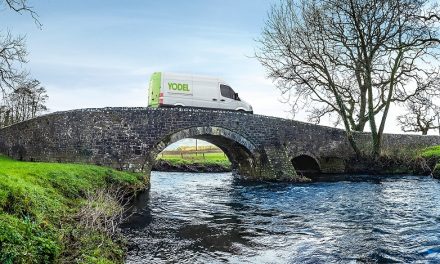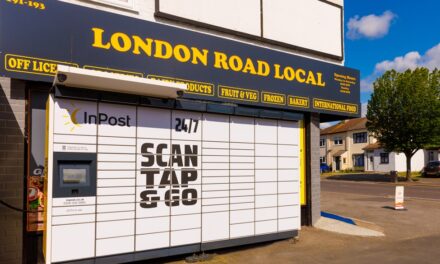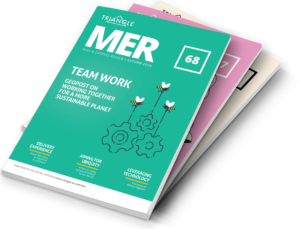
InPost: We want to change societal attitudes

According to market analysis, last mile deliveries account for the largest share of CO² emissions in ecommerce logistics. Authors of the recently published “Green Last Mile Europe 2022” report estimate that it can be most quickly reduced by extensive consumer education and broad implementation of out-of-home deliveries.
This is the key to success, as one parcel locker reduces CO² emissions by as much as 13,845 kg per year, which corresponds to the purification of the atmosphere by 2,769 trees.
In addition to detailed information on the pro-ecological role of InPost parcel machines, the report includes numerous green initiatives taken by all participants in the logistics and CEP sector (courier, express & parcel), as well as analyses of the impact of last mile deliveries on the environment and key trends and efforts aimed at protecting the planet.
According to the report, current CEP industry growth stemming from dynamic e-commerce market development is accompanied by a rapid increase in the number of delivery vehicles, and thus a surge in the carbon footprint emitted by increased door-to-door deliveries. The level of CO² emissions into the atmosphere in such a manner may reach 5.5 million tonnes by 2032. Fortunately, experts reassure that introducing pro-ecological activities offers opportunities to reduce the carbon footprint by over 91% in just a decade. However, two conditions need to be met globally for this to happen: the widest possible introduction of out-of-home deliveries and broad education of consumers and policymakers.
Jason Tavaria, CEO at InPost UK, said: “This report serves as a stark reminder of our collective responsibility to ensure a sustainable future. And while there have been noticeable steps taken towards more sustainable habits and practices across the world, ultimately, consumers and businesses alike need to be able to do more to cut carbon emissions and meet net-zero commitments.
“As the ecommerce industry goes from strength to strength, we need to work collaboratively to achieve these goals — finding greener last mile solutions that ensure our impact on the climate is front and centre and encouraging consumers towards these. This is something we are committed to leading in order to secure a greener future for all.”
Green out-of-home delivery
Report authors point to InPost parcel lockers as the most sustainable delivery mode in the out-of-home model. For instance, they can not only make final-mile logistics more efficient (ensuring parcels get to their recipients first time), they can also cut CO2 emissions by up to two thirds compared to home deliveries and reduce local noise pollution and congestion significantly on our roads. This is something there is clear appetite for in the UK, with InPost now having a network of over 3,000 parcel lockers across the country.
Looking ahead, further development and increased use of the parcel locker network will continue to contribute to vehicle traffic reduction in cities — improving air quality and protecting the climate.
Rafał Brzoska, founder and president of the InPost Group, says: “We want to change societal attitudes and remind people that we have to take care of the environment as consumers, because that is a concern for our common future. Parcel lockers are the most environmentally friendly form of online shopping delivery. They eliminate emissions of hundreds of thousands of tonnes of CO², but also significantly reduce the traffic of courier cars on the streets of European cities.
“One courier distributing parcels to Parcel Lockers delivers about 1,000 parcels per working day by visiting four to five addresses, while in the traditional D2D formula, one courier delivers an average of only 75 parcels per working day. In 2021 alone our solutions saved nearly 100 million litres of fuel across Europe, and with continued growth in the number of parcel lockers the fuel savings will only increase. The network of parcel lockers is so large that customers in large cities do not need to access them by vehicle, because they are located an average of 200-300 meters from their nearest device.
“A parcel locker reduces CO² emissions from deliveries by an average of 75 percent. Soon, this solution will also be available to hundreds of millions of European consumers. In Poland this has already resulted in a veritable environmental revolution. We want to take it further and develop our parcel locker networks across Europe, where we currently have more than 21,000 units. Our current ambition is for Western European consumers to take an active part in this ecological revolution.”

